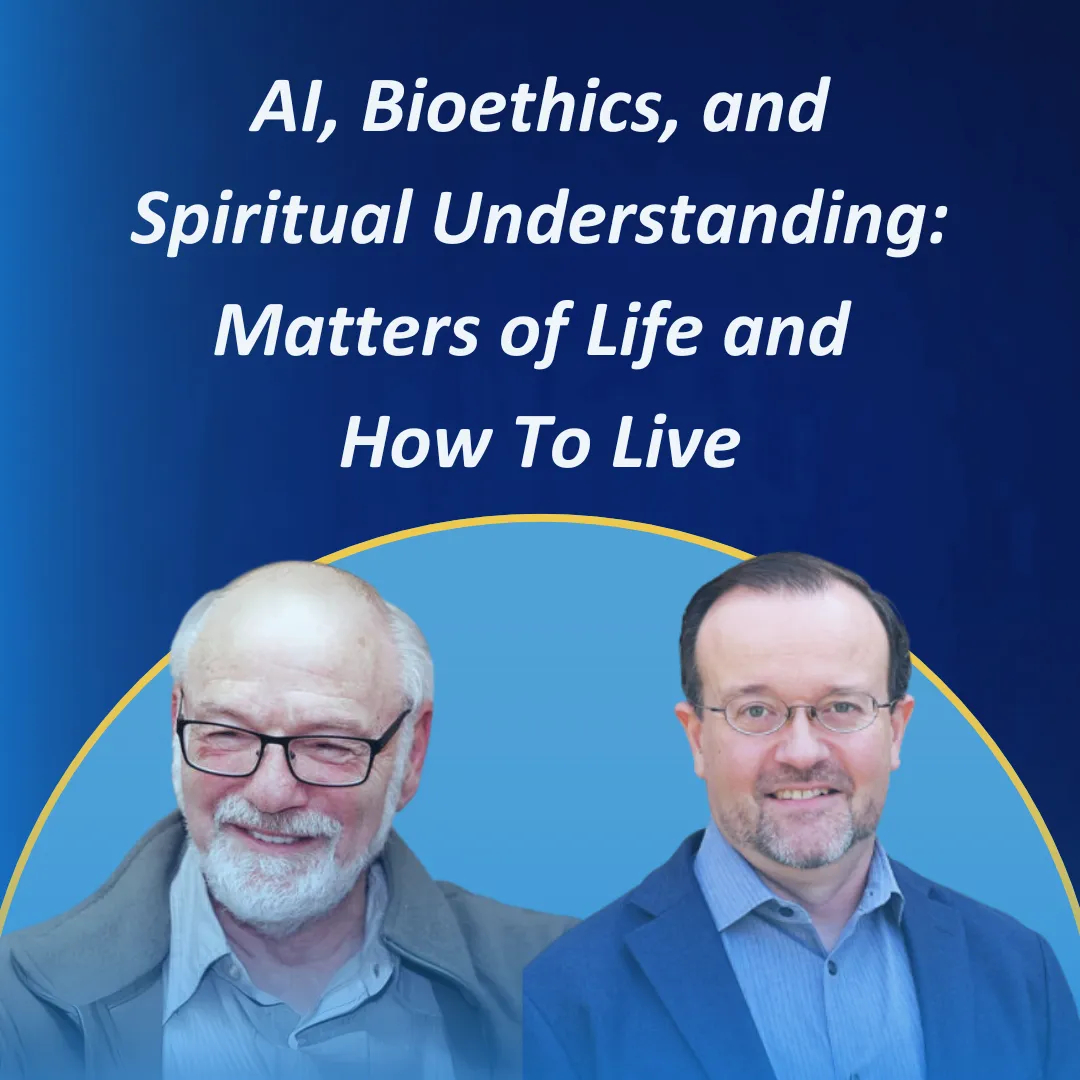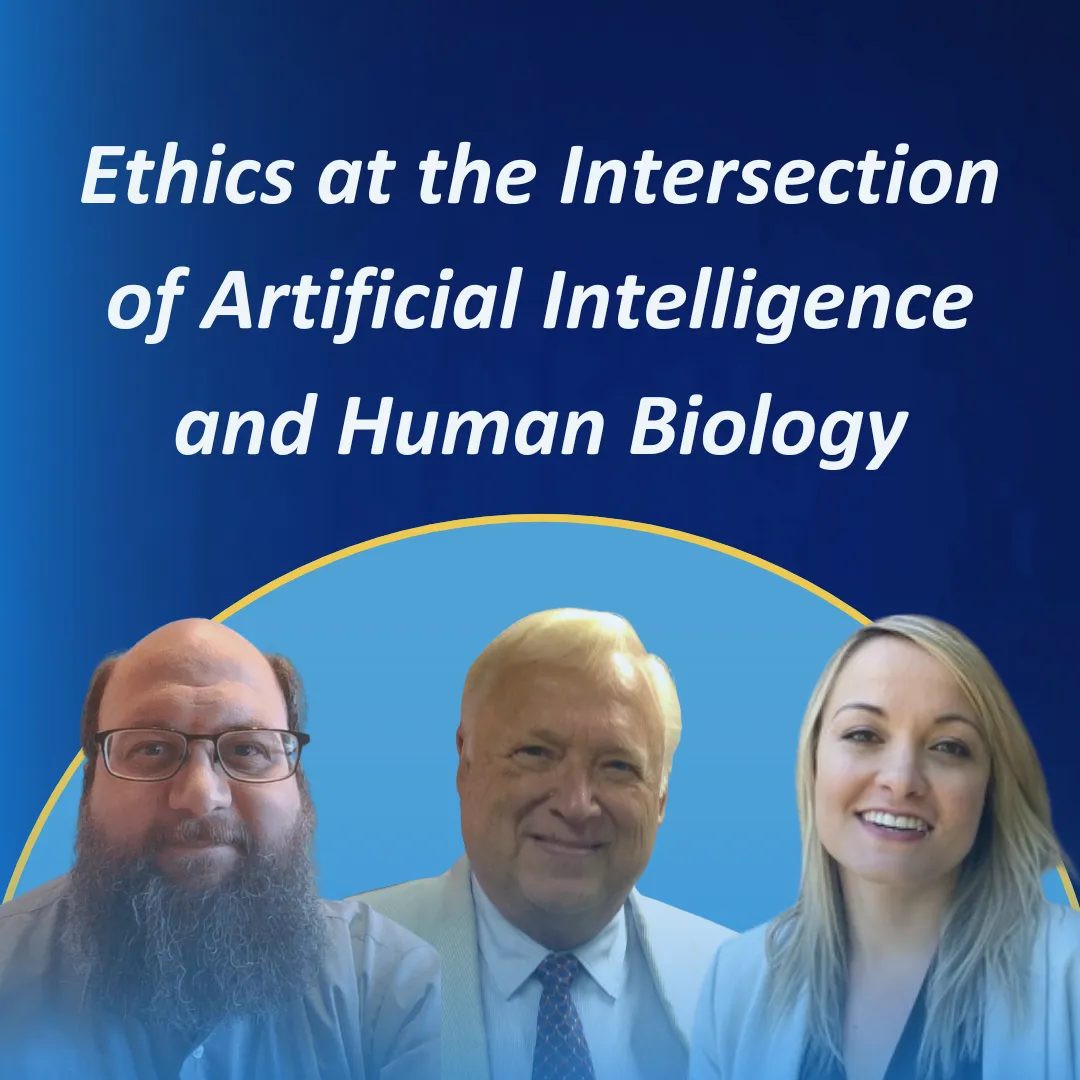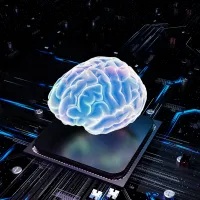AI and Faith has compiled resources from our AI and Bioethics theme, from September to October 2025.
Podcasts
Listen to an interview with renowned bioethicist and AI ethicist Wendell Wallach. He discusses how he became involved in the ethics of emerging technologies, the connection between bioethics and AI ethics, and his ideas for ways to improve contemporary discourse on the ethics of emerging technologies. Including his new work on what he calls “trade-off ethics” and “the silent ethic.”
In this wide-ranging conversation, we were joined by three renowned experts in the field of bioethics, medical ethics, and their intersection with technology. Braden Molhoek, Ted Peters and Sara-Jo Swiatek discuss gene editing, transhumanism, access, and the way our faith traditions can inform these very difficult decisions.
AI and Faith Articles
Cultures across time have wrestled with Ars Moriendi, or the art of dying. How does AI change how we understand our mortality? In this piece, AI and Faith editor Yuriko Ryan considers these themes and draws from the 15th century Ars Moriendi to offer guidance for a good death to a 21st century audience.
Access technology offers people with disabilities adaptive tools to use computers, smart phones and other devices. In this piece, AI and Faith professional member Skylar Covich explores how he uses AI-enabled access technology, and how faith communities can improve these tools for disabled communities.
While it is tempting to use AI chatbots to deliver therapy to populations with otherwise limited access to personal therapists, this essay unpacks the inherent limitations of LLMs which must be taken into account if one is to avoid harm to already vulnerable people.
Advocates for AI’s integration into healthcare systems see the technology as transformative, arguing that it may redefine the practice of medicine. However, from spreading outright misinformation to undercutting patient autonomy, these tools possess flaws that should not be overlooked. In this piece, Aaron Spitler explores the drawbacks presented by this innovation, as well as what can be done to ensure it is safely and responsibly deployed.
Advocates for AI’s integration into healthcare systems see the technology as transformative, arguing that it may redefine the practice of medicine. However, from spreading outright misinformation to undercutting patient autonomy, these tools possess flaws that should not be overlooked. In this piece, Aaron Spitler explores the drawbacks presented by this innovation, as well as what can be done to ensure it is safely and responsibly deployed.
When it comes to patient care, how should AI interface with medical professionals? In the second part of this piece, Dr. David Robson considers ways that AI models could aid doctors and caregivers, but warns of potential pitfalls if AI is misused or overused in these contexts.
Outside Articles
While convalescing after hiking accident, a chaplain experiments with using a variety of AI chatbots for comfort. Her exploration of both commercial (i.e. ad driven) and denominational solutions leads to a thoughtful reflection on the nature of ministry and the inherent inability of AI to integrate dogma and practice.










